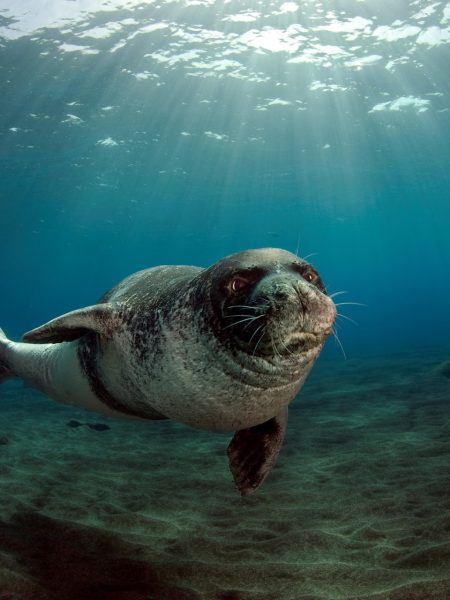Rights of Nature for the
Mediterranean Bioregion
WHY DO WE NEED RIGHTS OF NATURE FOR THE MEDITERRANEAN BIO-REGION?
According to IUCN Mediterranean Red List, the Mediterranean region is recognised as the second largest global Biodiversity Hotspot, encompassing both the terrestrial and marine environments.
The Mediterranean Basin Biodiversity Hotspot is located at the intersection of three continents, Europe, Asia and Africa, resulting in an exceptionally diverse and highly distinctive fauna and flora.
It stretches across more than 30 states, including major terrestrial habitats such as forests, maquis, garrigue, pasture, wetlands, coastal areas and transitional areas to desert zones.
The marine portion encompasses the 2,500,000 km2 of the Mediterranean Sea with a high diversity of habitats: seamounts, submarine canyons, seagrass meadows, maërl beds and coralligenous communities.
The long history of human occupation in the region, with close interrelations between its flora, major landscapes and human activities, has moulded and changed the fauna and flora over several thousands of years.
However, the Mediterranean Bioregion is now subject to rapid anthropogenic change by a range of drivers, including population growth, unchecked economic development, massive overfishing, heavy pollution, and, rapid climate heating, affecting the Mediterranean region more than anywhere else on the planet.
Today, 21% of the species in the Mediterranean Sea are considered vulnerable and 11% classified as endangered on the IUCN Red list. Of almost 6000 species assessed, 25%* are threatened.
And while there’s no single, universally agreed-upon number, it’s estimated that around 3% of the assessed species in the Mediterranean region are classified as Critically Endangered by the IUCN.
Alarmingly, 32 Mediterranean species are already known to be globally Extinct (EX), or Extinct in the Wild (EW): 11 freshwater fishes; two mammals; one reptile; 14 freshwater mollusks; and four plants!! IUCN Mediterranean Biodiversity HotSpot info
It is painfully obvious that the current laws and approach to not work and that it is high time we changed our relationship with the non-human beings we share our home with.
Rights of Nature approach, ethics and principles respect rights to life, existence, natural regeneration and evolution of every ecosystem and changes our relationship with other living beings from that of dominance and exploitation to one of respect and harmonious co-existence.
That is why we have initiated an international initiative for a legally binding (eventually) Declaration calling for the recognition of the the Mediterranean Bio-region as a legal entity subject of rights in order to permanently protect and restore it for the benefit of all living beings and for future life in harmony and cooperation with her.
What are the rights of the Mediterranean Bioregion
The Rights of the Mediterranean bioregion are inherent rights of this living entity to:
(a) the right to life and to exist;
(b) the right to thrive;
(c) the right to be respected;
(d) the right to regenerate its bio-capacity and to continue its vital cycles and processes free from disruptions by humans;
(e) the right to maintain its identity and integrity as a distinct, self-regulating and interrelated being;
(f) the right to clean water as a source of life to all living beings in the region;
(g) the right to clean air that impacts the region at large;
(h) the right to integral health;
(i) the right to the ecological integrity of its own unique biodiversity, both marine and terrestrial;
(j) the right to be free from contamination, pollution and toxic or radioactive waste;
(k) the right to be free of all kinds of sewage, waste and litter dumped or discharged into its waters ;
(l) the right to be free of human operations that require installations on its seabed and that threaten its ecological integrity;
(m) the right to be free from any kind of mining, coastal or deep sea;
(n) the right to not have its genetic structure modified or disrupted in a manner that threatens its integrity or vital and healthy functioning;
(o) the right to full and prompt restoration from violation of the rights recognized in this Declaration caused by human activities;
(p) every being has the right to wellbeing and to live free from torture or cruel treatment by human beings

Why Rights of Nature for the Mediterranean
Raising awareness of violations of Mediterranean rights
Collaborating with NGOs, academics, and policymakers
Supporting grassroots movements and local communities
Promoting peace, coexistence, and intercultural dialogue
Join the Movement
Whether you’re an activist, researcher, policymaker, or simply a concerned citizen, your voice matters.
Together, we can build a stronger and more just Mediterranean.
Sign our Declaration, participate in our campaigns, or support our projects to defend and advance Mediterranean rights.